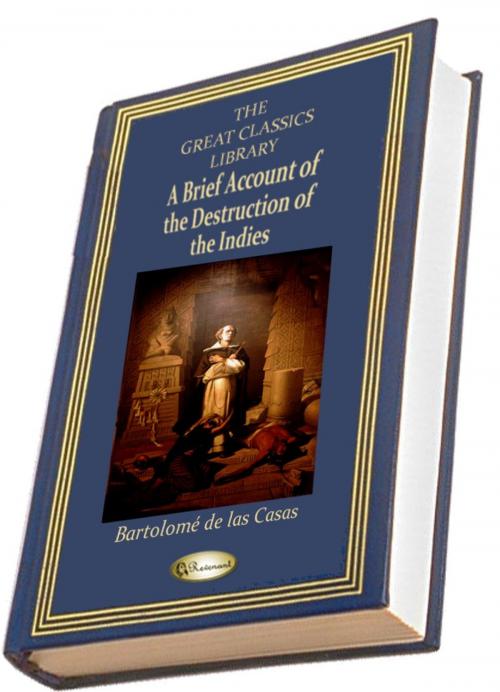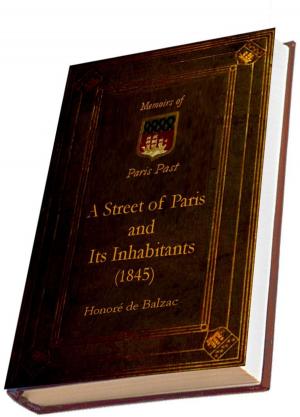A Brief Account of the Destruction of the Indies
Nonfiction, History, Americas, Caribbean & West Indies, Latin America, South America| Author: | Bartolomé de las Casas | ISBN: | 1230000096319 |
| Publisher: | Revenant | Publication: | January 4, 2013 |
| Imprint: | Language: | English |
| Author: | Bartolomé de las Casas |
| ISBN: | 1230000096319 |
| Publisher: | Revenant |
| Publication: | January 4, 2013 |
| Imprint: | |
| Language: | English |
This is a seventeenth century translation of a "Brevísima relación de la destrucción de las Indias", an impassioned tirade against Spanish behavior across South America and the Caribbean, recording a litany of horrors committed against the indigenous people there. In the process, De Las Casas also provides vivid images of the cultures being destroyed, so that this outpouring of outrage and pity also serves as a rich historical document.
The work was written in 1542 (published in 1552) and sent to then Prince Philip II of Spain.
One of the author's stated purposes for writing the account is his fear of Spain coming under divine punishment and his concern for the souls of the Native Peoples. The account is one of the first attempts by a Spanish writer of the colonial era to depict examples of unfair treatment that indigenous people endured in the early stages of the Spanish conquest. Las Casas's point of view can be described as being heavily against some of the Spanish methods of colonization, which, as he describes, have inflicted a great loss on the indigenous occupants of the islands.
His account is largely responsible for the passage of the new Spanish colonial laws known as the New Laws of 1542, which abolished native slavery for the first time in European colonial history.
The images described by Las Casas were later depicted by Theodor de Bry in copper plate engravings that helped expand the Black Legend against Spain.
Bartolomé de las Casas O.P. (c. 1484 – 1566) was a 16th-century Spanish historian, social reformer and Dominican friar. He became the first resident Bishop of Chiapas, and the first officially appointed "Protector of the Indians." His extensive writings chronicle the first decades of colonization of the West Indies and focus particularly on the atrocities committed by the colonizers against the indigenous peoples.
Arriving as one of the first settlers in the New World he participated in, and was eventually compelled to oppose the atrocities committed against the Native Americans by the Spanish colonists. In 1515, he reformed his views, gave up his Indian slaves and encomienda, and advocated, before King Charles V, Holy Roman Emperor, on behalf of rights for the natives.
He spent 50 years of his life actively fighting slavery and the violent colonial abuse of indigenous peoples, especially by trying to convince the Spanish court to adopt a more humane policy of colonization. And although he failed to save the indigenous peoples of the Western Indies, his efforts resulted in several improvements in the legal status of the natives, and in an increased colonial focus on the ethics of colonialism. Las Casas is often seen as one of the first advocates for universal human rights.
This is a seventeenth century translation of a "Brevísima relación de la destrucción de las Indias", an impassioned tirade against Spanish behavior across South America and the Caribbean, recording a litany of horrors committed against the indigenous people there. In the process, De Las Casas also provides vivid images of the cultures being destroyed, so that this outpouring of outrage and pity also serves as a rich historical document.
The work was written in 1542 (published in 1552) and sent to then Prince Philip II of Spain.
One of the author's stated purposes for writing the account is his fear of Spain coming under divine punishment and his concern for the souls of the Native Peoples. The account is one of the first attempts by a Spanish writer of the colonial era to depict examples of unfair treatment that indigenous people endured in the early stages of the Spanish conquest. Las Casas's point of view can be described as being heavily against some of the Spanish methods of colonization, which, as he describes, have inflicted a great loss on the indigenous occupants of the islands.
His account is largely responsible for the passage of the new Spanish colonial laws known as the New Laws of 1542, which abolished native slavery for the first time in European colonial history.
The images described by Las Casas were later depicted by Theodor de Bry in copper plate engravings that helped expand the Black Legend against Spain.
Bartolomé de las Casas O.P. (c. 1484 – 1566) was a 16th-century Spanish historian, social reformer and Dominican friar. He became the first resident Bishop of Chiapas, and the first officially appointed "Protector of the Indians." His extensive writings chronicle the first decades of colonization of the West Indies and focus particularly on the atrocities committed by the colonizers against the indigenous peoples.
Arriving as one of the first settlers in the New World he participated in, and was eventually compelled to oppose the atrocities committed against the Native Americans by the Spanish colonists. In 1515, he reformed his views, gave up his Indian slaves and encomienda, and advocated, before King Charles V, Holy Roman Emperor, on behalf of rights for the natives.
He spent 50 years of his life actively fighting slavery and the violent colonial abuse of indigenous peoples, especially by trying to convince the Spanish court to adopt a more humane policy of colonization. And although he failed to save the indigenous peoples of the Western Indies, his efforts resulted in several improvements in the legal status of the natives, and in an increased colonial focus on the ethics of colonialism. Las Casas is often seen as one of the first advocates for universal human rights.















